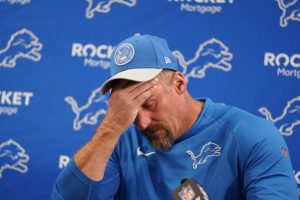Robert reveals his advice about Bonzo to Jimmy when they first met.
Great interview with humble and modest Jonesy talking about his career with Zep.
Jones remembers walking down the stairs (the first time he met Bonzo and Robert) with only one concern: “The first thing you think is, ‘I hope the drummer is good.’ ”
As a child, Jones owned a radio that could pull Radio Algiers out of the air, an invaluable resource that supplemented the steady diet of jazz supplied by his parents, who were vaudeville performers. After countless young Sundays spent improvising on the organ at church, Jones found work as a session man in London’s recording studios, where he first caught Page’s ear.
“I gave up a hugely lucrative career to join Zeppelin,” Jones says. “I was at the top of the session world.” But it was boring. He remembers his boss seeing him off: “You’re either a fool or a rich man.” It turned out to be the latter. In 1968, Atlantic Records approached Led Zeppelin with a record-setting advance, and the group would soon bask in the freedom that came with being a bestseller.
“We had a manager [the storied Peter Grant] that kept everyone away. The label weren’t allowed to come near us,” Jones says. “I spoke to Ahmet [Ertegun] afterward, and he told me, ‘We weren’t allowed within 20 paces of you.’ ”
With a pipeline of cash and no leash, Zeppelin spent endless hours in the studio, mapping new territory. And to Jones, everything was new territory. Even today, launching into “Stairway to Heaven” for the 10,000th time feels like a crusade.
“You have to approach it like this is the first time you’re playing it”
“As a member of the band, I’m immensely proud,” Jones says of the recognition. “But personally, it doesn’t quite touch me as much. It’s Led Zeppelin that got the award. It’s not me. I was just a small part of that.”





